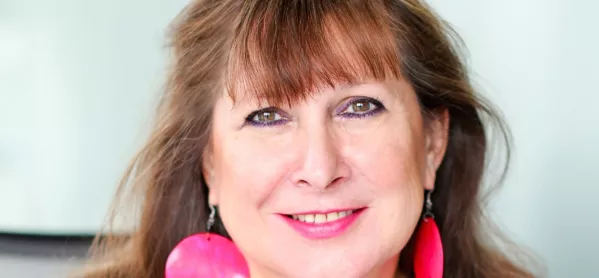On Monday morning, Sky News presenter Eamonn Holmes congratulated the Sky weather presenter Nazaneen Ghaffar on becoming Mrs Rose.
As far as I am aware, male television presenters are rarely congratulated on air for the act of getting married. And their spouse’s name rarely usurps their professional identity.
When Chinese diver He Zi won a silver medal at this summer’s Olympic Games in Brazil, she had no time to celebrate her achievement, because it was immediately overshadowed by her boyfriend’s proposal on the winners’ podium. That became the story: never mind winning an Olympic medal after years of hard training, she had bagged herself a man.
Even worse was the murder in London earlier this month of Darlene Horton, who was identified in most newspaper headlines only as the wife of a US professor.
It’s a casual and careless sexism that leaves an unpleasant taste for all women, but it is particularly toxic for girls.
Young women are told that they live in a post-feminist age, where they have achieved equality. In reality, however, they haven’t, because women still earn on average almost 20 per cent less than men.
They are told to work hard, achieve great grades and go for ambitious jobs. And this week, girls once again did so: they outstripped boys by a bigger margin than for years in the national GCSE results.
But they are also told that no matter how clever they are, they have to look good, too, and that they have to please men, both socially and, more damagingly, sexually.
Girls are told that no matter how clever they are, they have to look good, too
It’s no surprise that many are unhappy and we should be very worried about the recurring headlines concerning mental health issues in young (generally middle-class) women. But not for the reasons you might think.
There are certainly a number of girls with serious mental health issues. Others, however, suffer from more minor problems relating to teenage angst. We diminish the former if we pool them with the latter.
The latest study, from the Department for Education, says that one in three teenage girls has “psychological distress” by the time she starts studying for her GCSEs, and that girls are more than twice as likely to be affected as boys, with feelings of worthlessness or unhappiness.
Social media is often cited as a cause, but it is only a vehicle through which issues manifest themselves. If it weren’t there, there’d be something else.
It’s a complex mix of problems, but at its heart is a contradictory view of what a woman should be.
On the one hand we impel young women to be proactive, independent, to go out and conquer the world. On the other, we sell them the same old passive romantic tripe: you need to please men and wait for them to propose to you.
No wonder they’re unhappy. But they are not mentally ill.
Instead of addressing the cause of their angst, we have allowed an industry to be built around treating its symptoms. It perpetuates the misogyny of women as the weaker sex: it’s the 21st-century version of the vapours. Yes, women can go and get all these top grades, top jobs, but poor dears, they’re just too fragile to cope with the pressure.
We are not in a post-feminist world, but in some no-woman’s land; peddling modern freedoms while imprisoning women with traditional shackles.
If we keep allowing women to be portrayed like this there will be little progress for girls, despite their academic achievements.
In the meantime, I congratulate Mr Langsford for remaining so firmly wedded to old-fashioned sexist attitudes in 2016.
@AnnMroz




